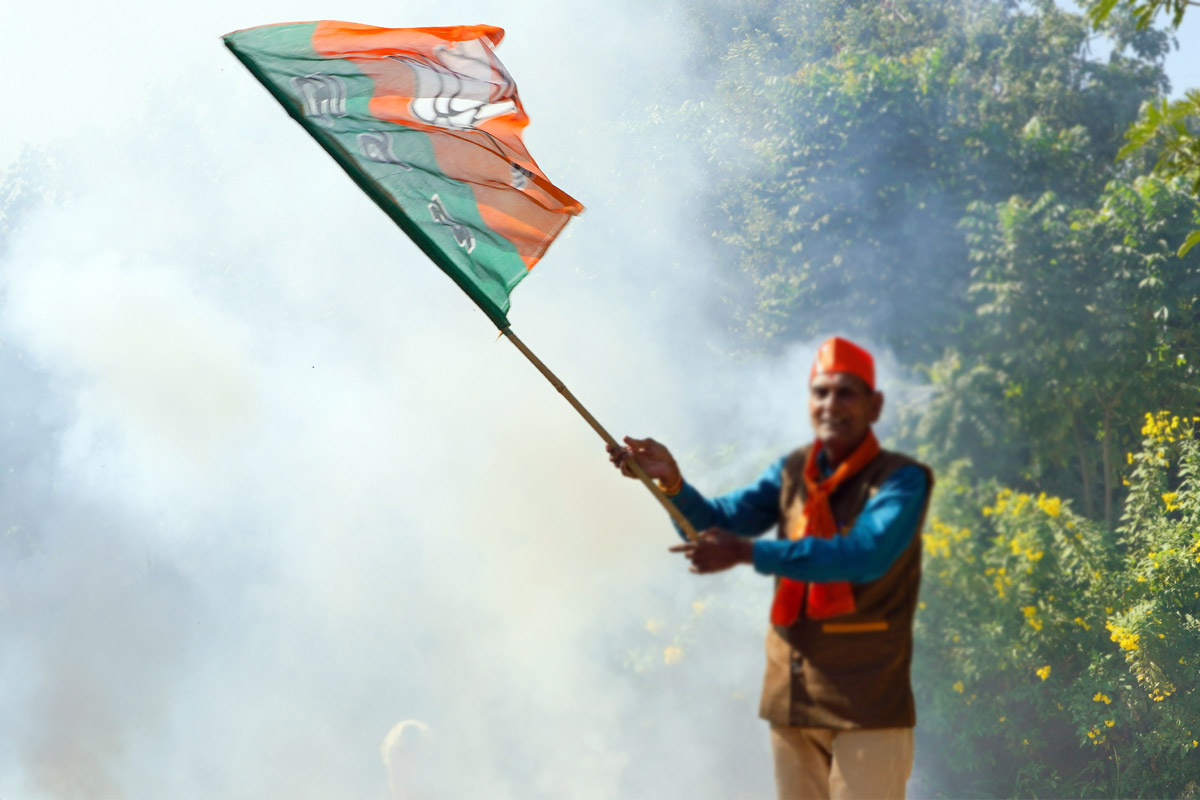MP CM and new DGP– both hail from Ujjain
Madhya Pradesh is soon going to witness a very rare occurrence, as the state’s Chief Minister and the new Director General of Police (DGP) will be from the same city.
In the intricate game of Indian politics, where each move can shape the destiny of millions, the BJP’s recent selection of chief ministers in Chhattisgarh, Madhya Pradesh, and Rajasthan seems to be a strategic chess play, reaching far beyond the boundaries of these states.

File Photo: ANI
In the intricate game of Indian politics, where each move can shape the destiny of millions, the BJP’s recent selection of chief ministers in Chhattisgarh, Madhya Pradesh, and Rajasthan seems to be a strategic chess play, reaching far beyond the boundaries of these states. While some may interpret these choices as mere caste balancing acts, a closer look reveals a nuanced strategy that could significantly influence the 2024 Lok Sabha elections. The appointment of Mr Mohan Yadav as the chief minister of Madhya Pradesh is a calculated move aimed at solidifying the BJP’s OBC voter base.
In a state where OBCs constitute around 50 per cent of the population, the Yadav community, historically aligned with the Samajwadi Party in Uttar Pradesh and the Rashtriya Janata Dal in Bihar, poses a challenge. By placing a Yadav leader at the helm, the BJP seeks not only to retain its support in Madhya Pradesh but also to send a strong signal to the Yadavs in crucial battleground states ahead of the 2024 polls. Chhattisgarh, with its unique position sharing borders with tribal districts in seven other states, becomes a focal point in the BJP’s larger strategy. Choosing Mr Vishnu Deo Sai, a tribal leader, as chief minister is a masterstroke.
It extends the narrative of tribal empowerment beyond state boundaries and could resonate in the 47 Lok Sabha seats reserved for Scheduled Tribes, a significant factor in the electoral calculus outside the North-eastern states. Rajasthan’s selection of Mr Bhajan Lal Sharma, a Brahmin, goes beyond mere caste considerations. In a state marked by internal party strife, Mr Sharma’s outsider status and lack of affiliation with any faction signify a clear rejection of in-fighting. This decision, undoubtedly influenced by the 2022 loss in Himachal Pradesh due to internal discord, serves as a stern message that unity is non-negotiable in the run-up to the crucial 2024 elections.
Advertisement
The deputy chief ministerial picks in these states further underscore the BJP’s meticulous caste balancing act. In Rajasthan, Ms Diya Kumari, a Rajput from a royal family, and Mr Premchand Bairwa, a Dalit, reflect an awareness of diverse voter bases within the state. Similarly, Madhya Pradesh’s selection of Mr Jagdish Devda and Mr Rajendra Shukla, a Dalit and a Brahmin respectively, adds another layer to the intricate calculus. What makes this political manoeuvring particularly fascinating is its ripple effect on neighbouring states.
The BJP appears to have moved beyond conventional state-centric strategies, acknowledging the interconnectedness of political landscapes. The choices made in these three states are not isolated decisions. They are strategic moves on a larger chessboard where each piece influences the other. As India hurtles toward the 2024 Lok Sabha elections, the BJP’s chief ministerial chess play seems designed to maximise its electoral gains. The party, known for countering caste politics with narratives of Hindutva, development, and nationalism, is now engaging in a delicate task of caste balancing.
Advertisement